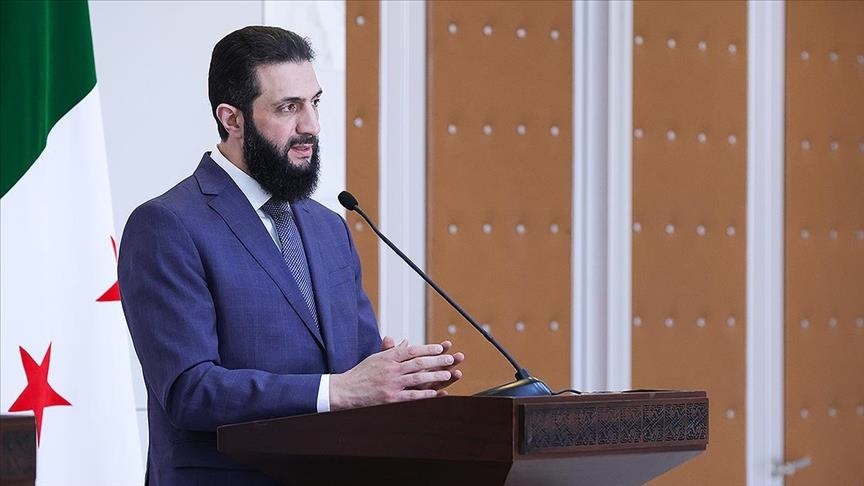Syria forms independent committee to investigate Latakia, Tartus incidents
Syrian presidency establishes commission to probe violent events that unfolded after coordinated attacks by Assad regime remnants

ISTANBUL
The Syrian presidency announced on Sunday the formation of an independent national commission to probe the recent violent incidents in the port cities of Latakia and Tartus.
Last week the coastal governorates of Latakia and Tartus witnessed coordinated attacks by remnants of the Assad regime. These were the most intense assaults since the regime’s collapse, targeting security patrols and checkpoints, resulting in casualties.
In response, security forces and the military launched sweeps and pursuit operations against the attackers, resulting in intense clashes. Government officials confirmed the restoration of security and stability in coastal cities and the beginning of efforts to track down the attackers and former regime officers hiding in rural areas and mountains.
Sunday’s presidential statement said the seven-member commission would “investigate the reasons, circumstances, and context of the events, look into violations against civilians, and identify those responsible,” according to the same statement.
It is also tasked with investigating attacks on public institutions, security personnel, and the military, holding those responsible accountable and referring them to the judiciary.
The statement called for all relevant government bodies to cooperate fully with the commission to complete its tasks.
The presidency granted the committee the right to seek assistance from any individuals it deems necessary for its work and set a deadline of 30 days from the decision’s issuance for the committee to submit its report to the presidency.
President Ahmad Al-Sharaa announced in a recorder speech the formation of a “Supreme Committee for Civil Peace,” tasked with directly engaging residents of the coastal region to hear their concerns, provide assistance, and safeguard their security.
He warned that “remnants of the former regime, along with external actors (whom he did not name), are attempting to incite strife and drag our country into civil war to divide and destabilize it.”
Reaffirming Syria’s resilience, Al-Sharaa declared, “We will not allow any foreign powers or domestic factions to push our country into chaos or civil war.”
“We will show no leniency toward Assad loyalists who have committed crimes against our military, state institutions, and innocent civilians, attacking hospitals and spreading disorder in once-secure areas,” he added.
“We have strengthened the area with security forces to protect civil peace and prevent retaliatory violence, but these forces were attacked, and many were killed," Sharaa said.
He firmly rejected any attempts to incite division, stating, “We criminalize any call that seeks to interfere in our country's affairs or spread discord and division—such rhetoric has no place among us.”
Sharaa also urged regional and international powers to stand with Syria during this critical moment, emphasizing, “We call on all nations to support Syria now and reaffirm their full respect for its unity and sovereignty.”
After the collapse of the Assad regime in December, the new Syrian authorities launched an initiative to settle the status of former regime members in the military and security forces, contingent on their surrendering weapons and remaining untainted by bloodshed.
While tens of thousands accepted the initiative, some armed groups made up of regime remnants, particularly in the coastal region where high-ranking Assad officers were stationed, rejected it.
Over time, these groups fled to the mountainous areas, stirring tensions, destabilizing the region, and launching sporadic attacks against government forces in recent weeks.
Bashar Assad, Syria’s leader for nearly 25 years, fled to Russia on Dec. 8, ending the Baath Party regime, which had been in power since 1963.
Sharaa, who led anti-regime forces to oust Assad, was declared president for a transitional period on Jan. 29.
Anadolu Agency website contains only a portion of the news stories offered to subscribers in the AA News Broadcasting System (HAS), and in summarized form. Please contact us for subscription options.







